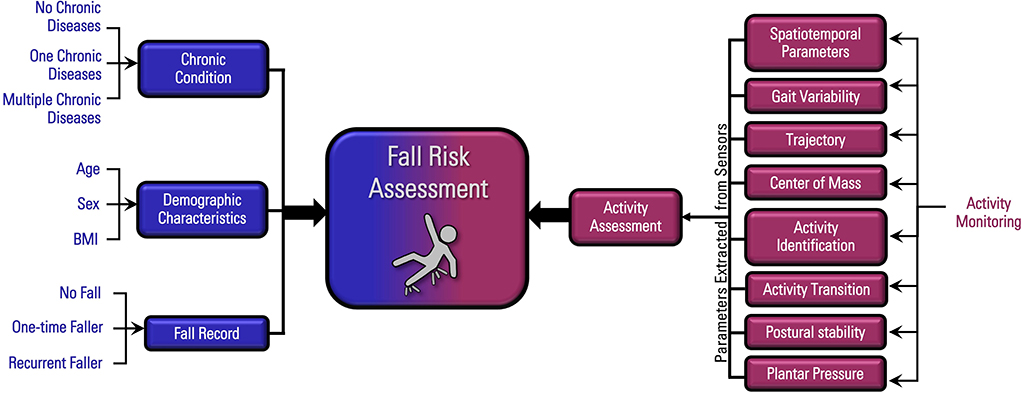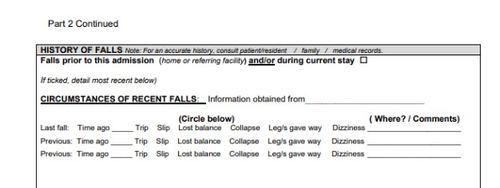Not known Facts About Dementia Fall Risk
Not known Facts About Dementia Fall Risk
Blog Article
Dementia Fall Risk Can Be Fun For Anyone
Table of ContentsSome Known Questions About Dementia Fall Risk.What Does Dementia Fall Risk Do?The Best Guide To Dementia Fall RiskDementia Fall Risk - An OverviewThe Best Strategy To Use For Dementia Fall Risk
Guarantee that there is a marked area in your clinical charting system where team can document/reference ratings and record appropriate notes connected to drop avoidance. The Johns Hopkins Fall Risk Assessment Tool is one of numerous tools your team can make use of to assist protect against damaging clinical occasions.Patient drops in health centers prevail and incapacitating damaging events that persist despite decades of effort to lessen them. Improving interaction throughout the assessing registered nurse, treatment group, person, and individual's most involved family and friends may enhance loss avoidance efforts. A group at Brigham and Female's Hospital in Boston, Massachusetts, looked for to establish a standardized fall avoidance program that focused around improved communication and patient and family involvement.

The innovation group emphasized that effective implementation relies on client and staff buy-in, combination of the program into existing workflows, and integrity to program procedures. The group noted that they are facing exactly how to guarantee connection in program application throughout periods of situation. During the COVID-19 pandemic, as an example, a boost in inpatient drops was connected with limitations in client engagement along with constraints on visitation.
Our Dementia Fall Risk Ideas
These events are normally thought about preventable. To implement the intervention, companies require the following: Access to Autumn pointers sources Fall suggestions training and retraining for nursing and non-nursing personnel, including new nurses Nursing workflows that enable individual and household involvement to conduct the falls assessment, make sure use the prevention plan, and conduct patient-level audits.
The results can be highly damaging, often accelerating client decrease and creating longer hospital remains. One research study approximated stays increased an extra 12 in-patient days after a person autumn. The Autumn TIPS Program is based on appealing patients and their family/loved ones across 3 major processes: assessment, customized preventative treatments, and bookkeeping to make sure that individuals are taken part in the three-step autumn avoidance process.
The client evaluation is based on the Morse Loss Range, which is a verified loss danger analysis device for in-patient health center setups. The range includes the six most common factors clients in hospitals fall: the patient fall history, high-risk conditions (including polypharmacy), use of IVs and other outside devices, psychological standing, gait, and flexibility.
Each threat aspect relate to several actionable evidence-based interventions. The nurse creates a plan that incorporates the treatments and shows up to the care team, client, and family members on a laminated poster or printed aesthetic help. Nurses establish the plan while meeting the person and the client's family members.
How Dementia Fall Risk can Save You Time, Stress, and Money.
The poster serves as an interaction device with various other participants of the patient's care team. Dementia Fall Risk. The audit component of the program includes examining the individual's expertise of their threat variables and avoidance strategy at the device and healthcare facility degrees. Registered nurse champs carry out at the very least five individual interviews a month with people and their households to look for understanding of the autumn avoidance plan

An estimated 30% of these falls lead to injuries, which can range in intensity. Unlike various other negative occasions that need a standardized clinical action, fall avoidance depends extremely on the demands of the client. Including the input of people who know the person ideal enables for higher personalization. This technique has proven to be more effective than fall prevention programs that are based mostly on the manufacturing of a threat rating and/or are not personalized.
Dementia Fall Risk for Beginners

Based upon bookkeeping outcomes, one website had 86% conformity and two websites had over 95% compliance. A cost-benefit evaluation of the Fall ideas program in eight hospitals estimated that the program cost $0.88 per individual to apply and resulted in financial savings of $8,500 per 1000 patient-days in direct expenses associated with the prevention of 567 drops over 3 years and eight months.
According to the innovation team, companies thinking pop over to these guys about applying the program ought to perform a readiness evaluation and falls avoidance gaps analysis. 8 In addition, organizations must make sure the required facilities and process for implementation and create an execution strategy. If one exists, the company's Autumn Prevention Task Pressure should be associated with planning.
The 8-Second Trick For Dementia Fall Risk
To begin, companies should guarantee completion of training components by registered nurses and nursing aides - Dementia Fall Risk. Healthcare facility personnel ought to assess, based upon the requirements of a hospital, whether to use a digital health and wellness document printout or paper version of the loss avoidance plan. Executing teams need to recruit and train nurse champs and establish processes for bookkeeping and reporting on loss data
Staff require to be entailed in the process of revamping the process to engage patients and household in the evaluation and prevention strategy process. Equipment needs to be in location to ensure that devices can comprehend why a click fall happened and remediate the reason. A lot more specifically, registered nurses ought to have networks to give recurring comments to both team and system management so they can adjust and boost fall avoidance workflows and communicate systemic issues.
Report this page